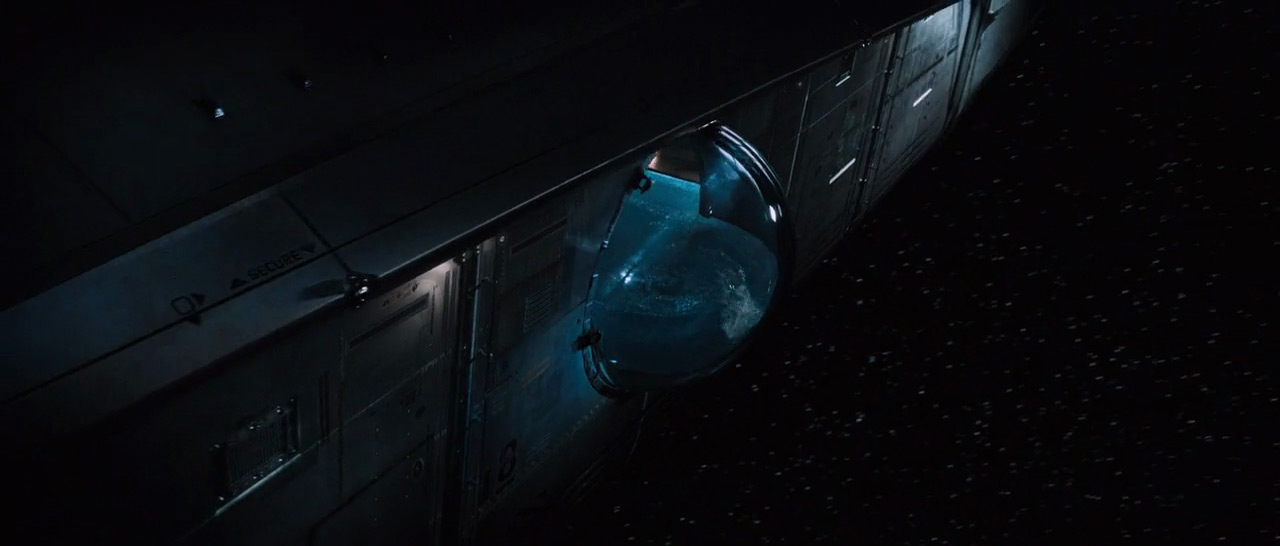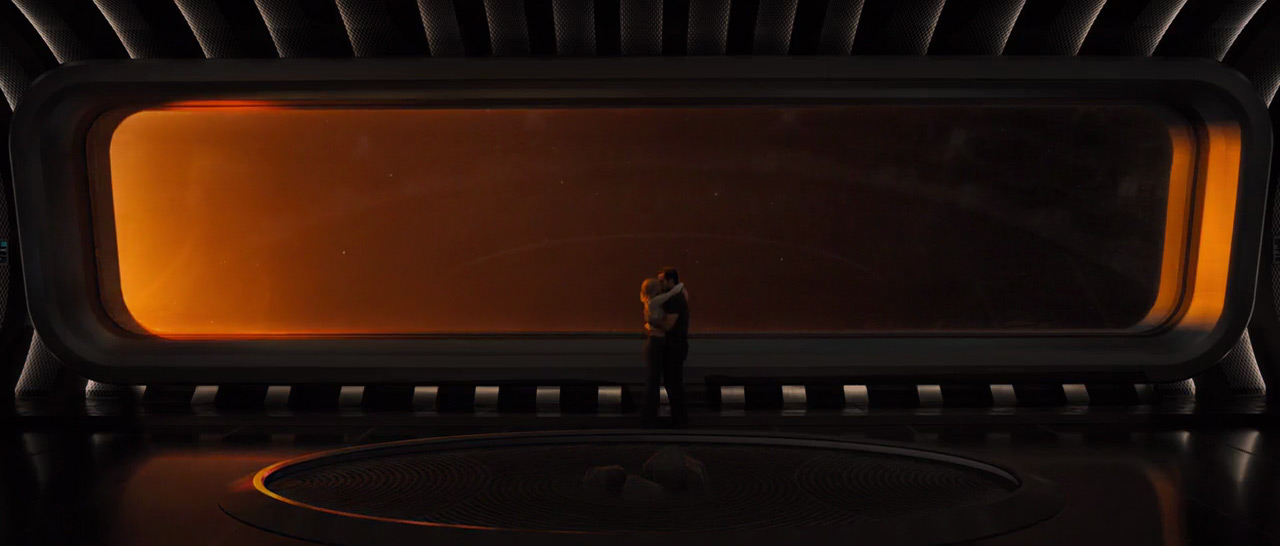Watching these two films one is struck by what appears to be a significant transformation (or, regression) in the future that science fiction expresses and of the role that it has traditionally played with respect to its social and political implications.xxxxxxxxxxxxxxxxxxxxxxxxxxxxxxxxxxxxxxxxxxxxxxxxxxxxxxxxxxxxxxxxxxxxxxxxxxxxxxxxxxxxxxxxxxxxxxxxxxxxxxxxxxxxxxxxxxxxxxxxxxxxxxxxxxxxxxxxxxxxxxxxxxxxxxxxxxxxxxxxxxxxxxxxxxxxxxxxxxxxxxxxxxxxxxxxxxxxxxxxxxxxxxxxxxxxxxxxxxxxxxxxxxxxxxxxxxxxxxxxxxxxxxxxxxxxxxxxxxxxxxxxxxxxxxxxxxxxxxxxxxxxxxxxxxxxxxxxxxxx
The future of Life is a militaristic, hierarchical anti-democracy. In this terrible, almost unwatchable film, we see the dominance of a soldier's form of solidarity, one which no form of rationality can ever undermine, one that, according to its own specific and limited emotional logic seeks to leave none behind (present company included only) which works to foreclose any attempt at a transcendent form of rational humanity. We see a debased concept of science and those who practice it to the level of caricature, that they have little unique ability beyond their title and the authority invested in them by someone else and, at bottom, behave in precisely the same way as everyone else: at the mercy of their primitive emotional responses. And we see an endless selfishness in the face of adversity, a selfishness that becomes even more what it is when a concern for others beyond themselves is only able to arise once all other means of saving-themselves have failed and the maximum unnecessary damage has been done as a result. This is a future in which the most ordinary (militaristic, juvenile) intelligence expressed in today's popular culture is elevated to the possibility of inscribing itself into historical events that define the future of humanity at its most critical moments. Life expresses the anti-intellectualism that is pervasive in contemporary American culture, one that glorifies the military and college fraternities (the past of one's hard-partying social solidarity), one in which contemporary critiques of science (i.e., climate deniers) find their own support in a future in which their present imbecility 1 finds its legitimacy and self-confidence.
The future of Passengers, complementarily, is one in which interstellar travel and earth's colonies on distant planets are managed exclusively, it seems, by a single private company. It is a future where that travel is imagined according to the concept of a luxury cruise, something one can buy a ticket for, rather than as a difficult endeavor requiring the limits of human-kind's capabilities and the culmination of its unified purpose. It is a future where what is understood today as luxury (brand) becomes amplified to its highest degree, where there are infinity pools that extend into the edge of space with a glass bubble, where automatic 'gold-star' 'breakfast included' (Four Seasons) meals emerge magically from a kiosk, and, generally, where unlimited consumption of anything, anytime, is possible, but is, of course, naturally as we know today, limited to the extent that one is able to pay for it and what individual choices were made in terms of purchasing the proper 'package'. What we see in this film is the elevation of capitalist economy, money and the philosophy of 'to each according to his wealth' to its highest degree, where a single message to a customer service representative can cost $6000 and where that becomes just another injustice to be casually shrugged off in today's typical airport baggage fee way, as something simply attributed to the endless comedic injustice of life. This is the contemporary phenomena of private enterprise supplanting the State (e.g., Space X, Virigin Galactic, Amazon Blue) elevated to carrying out humanity's most ambitious endeavors, where what is only a primitive possibility of the present, finds in the future of this film, the most complete realization of its latent potential of this concept of economic and political organization.

In both of these films, rather than a future that is the expression of the evolution and refinement of mankind’s best attributes, we get a future that is little more than an extension of what is already so ordinary in today's capitalistic economy--its individualism, consumerism, debased viral-click-bait intelligence--a future that is, on the one hand, one we can purchase and, on the other, that requires little more than the level of intelligence needed to, for instance, navigate a customer-service website2. Each of these films provide us with different aspects of the same ideology. It is a future in which any current debate surrounding the proper foundation for our social, political and economic life going forward has been answered. It is a future whose allure comes not from the grand ambitions for humanity to make a better life, or from the realization of any project according to an ideology for social or economic change, but one that comes only in the form of pandering to the constellation of petty desires, fixations, obsessions, fetishizations of technology that constitute society today. This isn't simply a matter of positing such and such a future that, through its dystopic appearance when compared to the present in which it is produced raises questions about certain aspects of the present that might be worth considering; rather, it is an issue of portraying a future that isn't in any distinct way any different from the present moment of its production. Here, the function of science fiction seems inverted, and its function as social critique and/or as an ambitious vision for a more moral and just future3 is replaced by a science-fiction that, rather, only functions as a shiny, well-polished, more thoroughly technologified extension of the present that has the subtle effect of solidifying the contours of the present and generating new desires about its perhaps previously unrecognized potential contained in less 'advanced' products today.

In this sense, what these films express is not so much a science-fiction of the unimagined possibilities of the future, but the fiction that the present should continue uninterrupted for the next 2000-years--that the future will be little more that today amplified and extended into tomorrow, shinier, more polished, but unmistakably only the present. Thus, these films appear to be the most explicit manifestation of Slavoj Žižek's assertion that the only truly hegemonic idea today is that there is no possibility of an alternative to the present capitalist economic form of social and political organization4. What one hopes, then, is that rather than expressing fundamental aspirations of the present, that these films instead reveal to us today the unbalanced control of the symbolic space by a group of extremely wealthy entities that expresses their hubris about their (and their ideology's) ability to manufacture the future according to nothing more than the terms that define it (so lucratively) for their benefit today. So, truly a science fiction, one hopes.

Footnotes
It could also be argued that the film is actually a more elaborate critique, in the sense that it is as stupid as it is not because it takes itself seriously, but that it wants to highlight the absolute stupidity of precisely this kind of pop-cultural version of humanity. An anti-science fiction blockbuster, then, along the lines of Ben Affleck's The Accountant. But support for this is purely speculative and lies mostly in the fact that Jake Gyllenhaal stars in the film and in that fact that he generally chooses films with some social or political conscience (i.e., Nightcrawler, Brokeback Mountain). ↩
Fixing things in Passengers becomes little more than initiating a reboot sequence so that the computer can do the repair itself. ↩
We will consider in a later article this more fundamental relationship between science fiction films, the social imagination of the present in which they are produced, and the futures that they express. But it is clear, looking only at the history of science fiction from Alien, Blade Runner, Star Trek, Star Wars, among many others, that what how the future is represented is slowly changing. The way in which Star Trek alone has been dramatically re-imagined by J.J. Abram's is itself profoundly revealing about this transformation taking place, as science fiction is progressively neutered of any socially transformative ideological function. ↩
It is in the way that these films should be looked at as just more manifestations of an emergent ideologically conservative cinema. ↩
